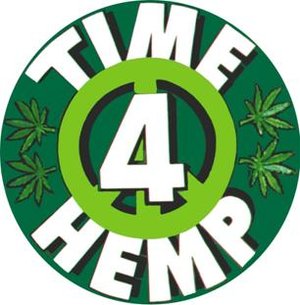FDA Puts Hemp Under the Microscope
Cassandra Taylor, PhD, Scott Janiczak, PharmD, MPH, BCPS, and Stephen Galati, MD, identify cannabis products on the market and how they differ from FDA regulated human drugs, as well as the various ways that those products are manufactured and how the quality controls are different and some of the potential risks that are associated with cannabis use.
A Turning Point For The CBD Industry
Written by Casper Leitch
New FDA monitoring could reshape the future of hemp-derived cannabinoids, bringing long-awaited data, as well as new challenges, to the CBD marketplace.
A Historic Step in Hemp Oversight
In a long-anticipated move, the U.S. Food and Drug Administration (FDA) has officially begun tracking hemp-derived cannabinoids, such as cannabidiol (CBD). through its MedWatch program. This is the first time in history the agency will systematically collect consumer-reported health data related to hemp products.
The update introduces a new reporting category: Cannabinoid Hemp Products (such as products containing CBD), and is a major milestone for an industry that has operated for years without clear regulatory oversight.
Through MedWatch, the FDA has long monitored potential health problems linked to medications, supplements, and medical devices. Now, hemp joins that list, opening the door to data-driven decision-making on CBD’s safety, benefits, and risks.
What This Means for the Hemp and CBD Market
For the hemp industry, the inclusion of CBD in MedWatch brings both opportunity and uncertainty. On one hand, this shift will provide more precise, targeted data about adverse events, helping distinguish between high- and low-risk products. Until now, reports involving CBD were scattered across unrelated categories, making it difficult for regulators to draw meaningful conclusions.
With clearer data, the FDA can finally start identifying genuine safety signals and, ideally, craft sensible, evidence-based regulations. For a market plagued by misinformation and inconsistent quality, that could mean progress toward legitimacy and consumer trust.
However, greater scrutiny also carries risk. Stronger data might prompt the FDA to impose dosage limits, labeling standards, or product restrictions; measures that could benefit public safety but increase compliance costs for small producers.
The Double-Edged Sword of Public Reporting
MedWatch depends entirely on voluntary submissions from consumers, health professionals, and manufacturers. These reports can be inconsistent, often missing critical information like dosage, co-used substances, or pre-existing health conditions.
The problem? A few alarming but incomplete reports can create a distorted picture of risk, especially when amplified by headlines. Worse, the public and some media outlets often confuse non-intoxicating CBD with synthetic cannabinoids like delta-8 THC, a lab-altered compound derived from hemp that can produce psychoactive effects. As a result, CBD’s reputation is at stake, potentially overshadowed by association with products that behave very differently in the body.
Market Ripple Effects
The market consequences of this move could be profound. A surge of negative, but unverified, reports might discourage retailers from carrying CBD products or scare off investors already wary of regulatory ambiguity. This comes at a time when the industrial hemp market is contracting after years of rapid expansion.
Companies that have invested heavily in testing, certification, and transparent labeling could find themselves punished by broad, fear-based reactions rather than rewarded for responsibility. If regulators delay clear guidelines while sorting through this new wave of data, the market uncertainty could deepen, leaving the CBD industry in limbo.
Safety Science and Global Perspectives
The FDA’s concern about CBD safety isn’t new. For years, the agency has urged more research into liver health, reproductive effects, and potential drug interactions. Studies have shown elevated liver enzymes and sedation at higher doses, along with possible appetite changes.
Across the Atlantic, the European Food Safety Authority (EFSA) has taken a similar stance, declining to confirm CBD as a “novel food” until more research is available. In the UK, the Food Standards Agency has advised pregnant women and those with certain medical conditions to avoid CBD altogether.
Still, millions of consumers worldwide safely use hemp-derived CBD daily. From tinctures and oils to gummies and capsules, users frequently report improved sleep, relaxation, and reduced anxiety, often with few or no side effects. Clinical trials support these observations, particularly in treating rare seizure disorders, though they also emphasize the importance of ongoing safety monitoring.
State-by-State Patchwork and the Push for Clarity
The FDA’s move comes amid a confusing landscape of state-level laws. In New York, strict THC limits and mandatory testing have upended the local CBD market, while California and Colorado enforce comprehensive labeling and safety requirements. Both have banned synthetic intoxicants like delta-8 THC, underscoring the tension between innovation and oversight.
This regulatory patchwork reflects a broader truth: without federal clarity, states are left to set their own standards, creating confusion for producers and consumers alike. By adding CBD to MedWatch, the FDA is taking a critical first step toward national consistency. Centralized data could finally allow the agency to craft balanced rules that support both safety and innovation across the hemp supply chain.
The Road Ahead: Building Trust Through Transparency
The inclusion of hemp cannabinoids in the FDA’s MedWatch program signals a new era for the hemp and CBD industries. For the first time, federal regulators will have structured, product-specific data to guide decisions about safety and consumer protection. There’s reason for caution, but also optimism. With stronger science, clearer standards, and continued industry cooperation, this initiative could mark the beginning of true credibility for hemp-derived cannabinoids.
As stakeholders and consumers alike await the next chapter, one truth remains: trust grows where transparency thrives. Responsible regulation doesn’t have to mean restriction, it can mean recognition. And for hemp, that recognition has been a long time coming.
Below is a FREE TO DOWNLOAD song about cannabis by The Illusions Of Music.
Sweet Re-Leaf
MedWatch Today: Cannabis derived medication approved by FDA to help epilepsy patients


